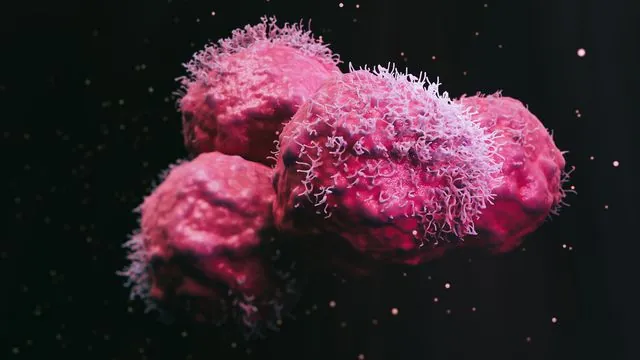
Groundbreaking Drug Duo Could Revolutionize Treatment for Aggressive Bladder Cancer!
2024-09-26
In a remarkable breakthrough, researchers at the Herbert Irving Comprehensive Cancer Center (HICCC) have discovered an exciting drug combination that shows promise in the fight against muscle-invasive bladder cancer, a particularly aggressive form of the disease. Their study, conducted on mice, identified that the pairing of rosiglitazone and trametinib not only led to significant tumor cell death but also transformed aggressive tumor cells into a less harmful subtype.
Led by Dr. Cathy Lee Mendelsohn, a prominent researcher at HICCC, the team is optimistic about taking the next step: advancing to clinical trials aimed at evaluating this combination therapy in human patients. Their findings were recently published in Nature Communications, adding to the growing body of research focused on pioneering treatments for this challenging cancer type.
Why This Discovery Matters We More Than Ever!
Bladder cancer ranks as the sixth most prevalent cancer in the United States, accounting for over 83,000 new cases and around 16,800 deaths annually. While most bladder cancers are non-muscle-invasive and carry a decent prognosis, up to 20% of these can progress to the muscle-invasive stage, with a five-year survival rate dropping to near 50%. The urgent need for alternative treatments has become increasingly clear as traditional options like cystectomy and chemotherapy offer limited success.
Despite recent advancements, such as the approval of immune checkpoint inhibitors, only a small subset of patients exhibit significant responses, leaving many without effective treatment avenues. "We just need more options," stresses Dr. Mendelsohn, emphasizing the critical need for innovative therapies.
Transforming Tumor Profiles: A Revolutionary Approach
Adopting a different strategy, Dr. Mendelsohn and her colleagues drew inspiration from prior studies involving the same drug combination in breast cancer research. While previous investigations showed that rosiglitazone and trametinib could effectively stunt tumor growth and halt metastasis, this current study reveals their capacity to switch muscle-invasive bladder cancer cells to a more benign "luminal" subtype.
Bladder cancer is characterized by two distinct molecular profiles: luminal tumors, which are less aggressive, and basal/squamous tumors, renowned for their invasiveness and tendency to metastasize. Using advanced autochthonous mouse models that mimic the tumor development process in living organisms, the research team observed an astonishing 91% reduction in tumor size in those treated with the drug duo.
Dr. Mendelsohn remarked, "While administering rosiglitazone or trametinib alone slows tumor growth, the combination therapy not only induces apoptosis but also reprograms remaining tumor cells to a more benign state."
Looking Ahead: From Lab to Clinic
Both rosiglitazone, primarily used for type 2 diabetes, and trametinib, an FDA-approved treatment for various cancers including melanoma and lung cancer, are already established in clinical use. The researchers believe that these drugs hold potential for patients battling basal/squamous muscle-invasive bladder cancer, a population in dire need of effective treatment solutions.
The next challenge is to establish optimal dosing and treatment duration for human subjects—a task the team is eager to tackle. Dr. Mendelsohn expressed her hope to initiate clinical trials shortly, suggesting that this combination therapy could pave the way for unprecedented advancements in bladder cancer treatment.
Stay tuned to this developing story as new possibilities unfold in the fight against one of America's most common cancers!


 Brasil (PT)
Brasil (PT)
 Canada (EN)
Canada (EN)
 Chile (ES)
Chile (ES)
 España (ES)
España (ES)
 France (FR)
France (FR)
 Hong Kong (EN)
Hong Kong (EN)
 Italia (IT)
Italia (IT)
 日本 (JA)
日本 (JA)
 Magyarország (HU)
Magyarország (HU)
 Norge (NO)
Norge (NO)
 Polska (PL)
Polska (PL)
 Schweiz (DE)
Schweiz (DE)
 Singapore (EN)
Singapore (EN)
 Sverige (SV)
Sverige (SV)
 Suomi (FI)
Suomi (FI)
 Türkiye (TR)
Türkiye (TR)